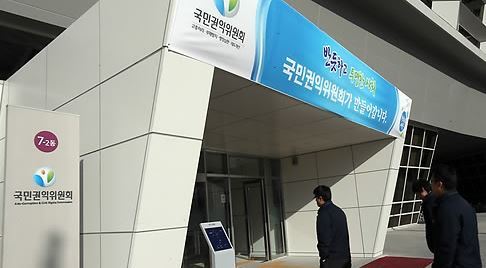Some 182 cases of hiring irregularities were found through a three-month survey of hundreds of public institutions, the government said Wednesday.
In response, the government said it would require public institutions to disclose the number of new hires with family ties to existing staff members and would also take steps to introduce legislation to address conflicts of interests, which would limit public officials’ ability to influence their relatives’ careers.
The survey took place Nov. 6 through Jan. 31 after hiring irregularities at Seoul Metro became an issue during last year’s parliamentary audits of government offices.
Jointly conducted by the Anti-Corruption and Civil Rights Commission and the ministries responsible for the economy and finance, the interior and safety, and employment and labor, the survey looked into recruitments since 2017 and transitions from temporary positions to regular staff positions over the past five years at 1,205 institutions. These comprised 333 state-funded institutions, 634 institutions funded by local governments and 238 public service organizations.
 |
Anti-Corruption and Civil Rights Commission (Yonhap) |
The survey uncovered 158 cases of irregularities concerning new recruits and 24 involving transitions to regular staff positions. Altogether, the irregularities involved a total of 288 staff members, including seven executives.
The government said it would request police investigations in 36 of those cases and disciplinary action in the other 146.
Of the seven executives involved, three will be suspended immediately and may be fired depending on the results of the police investigations. The other four will be disciplined in accordance with the rules of their respective institutions.
The 281 other staff members will be suspended immediately and will be expelled in accordance with due procedures should they be indicted.
An estimated 13 people who were hired unfairly will be removed from office should they be indicted by prosecutors. They will be suspended immediately and expelled after reinvestigations if anyone is indicted in connection with their recruitment.
An estimated 55 victims of hiring irregularities will be given a chance to reapply at the next stage of recruitment.
The government will come up with a unified set of guidelines for disciplinary action against those involved in hiring irregularities to ensure that strong deterrents are in place.
The survey will also be repeated each year.
Public institutions will be required to discuss recruitment plans with their oversight bodies in advance, and to make their employment procedures and standards clear in their own regulations.
Kim So-hyun (
sophie@heraldcorp.com)







![[Today’s K-pop] Blackpink’s Jennie, Lisa invited to Coachella as solo acts](http://res.heraldm.com/phpwas/restmb_idxmake.php?idx=644&simg=/content/image/2024/11/21/20241121050099_0.jpg)
